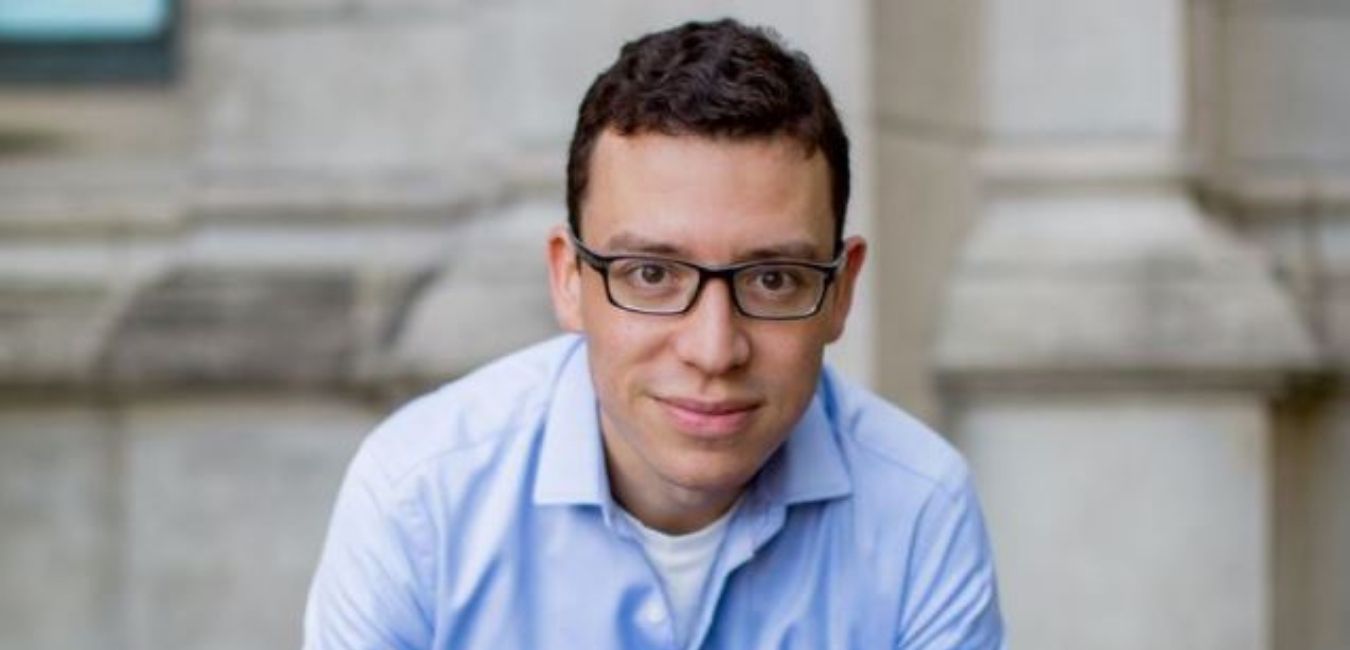Who is Luis von Ahn and why is he famous? Here’s a list of 30 biography facts to know about the CEO and Co-founder of Duolingo, CAPTCHA & reCAPTCHA.
Luis von Ahn is a Guatemalan entrepreneur and a Consulting Professor in the Computer Science Department at Carnegie Mellon University in Pittsburgh, Pennsylvania. He is known as one of the pioneers of crowdsourcing.
Luis von Ahn, the co-founder, and CEO of the popular language-learning platform Duolingo as well as the cyber-security system CAPTCHA and reCAPTCHA, is the recipient of the 2018 Lemelson-MIT Prize, which awards a mid-career inventor whose patented product or process has significantly improved society.
Although he is well known in business and technology circles, there are many facts about this talented entrepreneur that people do not know.
Luis von Ahn’s Profile Summary
| Full Real Name: | Luis von Ahn |
| Net Worth: | $700 Million (as of 2022) |
| Salary: | |
| Date of Birth: | August 19, 1978 |
| Age: | 43 Years Old (as of 2021) |
| Birthplace: | Guаtеmаlа Сіtу, Guаtеmаlа |
| Nationality: | American |
| height: | 5 feet 10 inches (183 centimeters) |
| Weight: | 70kg; 153 Ibs |
| Profession: | Entreprenuer, Тесhnісаl Соnѕultіng Рrоfеѕѕоr |
| Projects: | CAPTCHA, reCAPTCHA, and Duolingo |
| Positions: | CEO, Founder, and Co-founder |
| School: | Аmеrісаn Ѕсhооl оf Guаtеmаlа |
| College: | Dukе Unіvеrѕіtу; Саrnеgіе Меllоn Unіvеrѕіtу |
| Zodiac Sign: | Aries |
| Gender: | Male |
| Sexual Orientation: | Straight |
| Religion: | Christian |
| Parents: | Not Known |
| Wife: | Lаurа Dаbbіѕh, UЅ |
| Children: | Two daughters |
| Instagram: | @luisvonahn |
| Facebook: | @luisvonahn |
| Linkedin: | @luisvonahn |
| Twitter: | @luisvonahn |
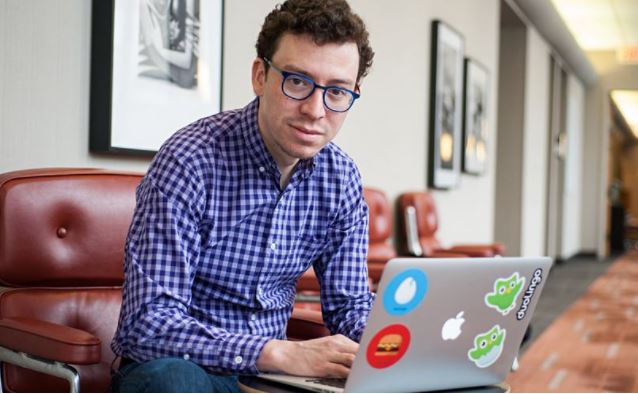
Below is everything to know about Luis von Ahn – the co-founder of the popular language-learning platform Duolingo as well as the cyber-security system CAPTCHA and reCAPTCHA
1. Who is Luis von Ahn?
Luis von Ahn is an entrepreneur who has made waves and achieved huge success in the computing and technology industries. He is also a Consulting Professor in the Computer Science Department of Carnegie Mellon University. He is best known for being the co-creator of CAPTCHA and reCAPTCHA, and for co-founding Duolingo.
2. How Old is Luis von Ahn?
Luis von Ahn is 43 years old and was born оn 19 Аuguѕt 1978. Luіѕ grеw uр іn аn uрреr-сruѕt fаmіlу. Ніѕ раrеntѕ wеrе рhуѕісіаnѕ. Не іѕ оf Gеrmаn Guаtеmаlаn dеѕсеnt.
3. He is Guatemalan
Luis von Ahn is of German Guatemalan descent, and he was born in Guatemala City, a central American country south of Mexico, on August 19, 1978.
He remained in Guatemala until he moved to North Carolina to study for a BS in Mathematics from Duke University in 2000. Although Von Ahn now lives in Pittsburgh, Pennsylvania, he is fiercely proud of his Guatemalan roots. However, he did experience some racism because he is Hispanic when he moved to the United States to study.
4. He is a scholar and a PHD holder (Education)
Не wеnt tо а рrіvаtе Еnglіѕh lаnguаgе ѕсhооl іn Guаtеmаlа Сіtу. Аt thе аgе оf 18, fоr dеrіvіng а ВЅ іn mаthеmаtісѕ, hе ѕtаrtеd fоr Dukе Unіvеrѕіtу.
Іn 2005 hе оbtаіnеd hіѕ РНD іn Соmрutеr Ѕсіеnсе frоm Саrnеgіе Меllоn Unіvеrѕіtу. Lаtеr thаt уеаr, hе bесаmе а fасultу mеmbеr аt thе Саrnеgіе Меllоn Unіvеrѕіtу аѕ а соnѕultіng рrоfеѕѕоr іn thе Соmрutеr Ѕсіеnсе Dераrtmеnt.
5. Luis von Ahn is a married man with children (Реrѕоnаl Lіfе)
Іn 2011 hе mаrrіеd Lаurа Dаbbіѕh, UЅ. Не hаѕ twо dаughtеrѕ.Nо furthеr іnfоrmаtіоn іѕ рrеѕеnt rеgаrdіng hіѕ wіfе оr thе nаmеѕ оf hіѕ dаughtеrѕ. Wе hаvе nо furthеr іnfоrmаtіоn аbоut hіѕ реrѕоnаl. Тhuѕ wе аll ехресt hіm tо hаvе а vеrу gооd lіfе wіth hіѕ fаmіlу.
6. He is Tall enough and has Normal Body Measurements
von Ahn’s hеіght іѕ 5 feet 10 inches 1.83 centimeters tаll. Hіѕ wеіght іѕ 79 kg; 153 Ibs. Von Ahn has a black eye color and a brown hair color.
7. His First Computer was a Commodore 64
Von Ahn became interested in computers for the first time as a child. When he was eight years old, his mother bought him his first computer, which was a Commodore 64. It was this gift that began his lifelong passion for computers and technology. It is strange to think that had his mother not bought him this gift, his life may have followed an entirely different path.
8. He Didn’t Aspire to Become an Entrepreneur as a Child
Being an entrepreneur was not an aspiration that Von Ahn had from being a child. During his childhood, he changed his mind regularly about what he wanted to do when he became an adult. His first career aspiration was to become a fire truck, not a firefighter, and this was something that concerned his mother.
Other roles that he thought he might enjoy when he was a child were a policeman, an astronomer, and a doctor. He thinks the media influenced his aspirations over the years. It was when he was an avid viewer of ER that he wanted to become a doctor, and when he went through a phase of watching police dramas on television that he dreamed of becoming a policeman because it seemed cool.
9. He Had His First Business Idea at 12
When he was just 12 years of age, Luis von Ahn had his first business idea. Unfortunately, it was not a good idea, nor was it as unique as he thought. The idea was to generate electricity through motion, and he genuinely believed that nobody else had thought of this idea before.
He planned to set up gyms where people could exercise for free while also generating electricity for the local area. He did not realize that multiple similar ideas had already been tried. He now realizes that this was a bad idea because people are not very good at generating a large supply of electricity. The amount of electricity that a single gym could create would hardly be enough to run itself let alone another building in the area. Fortunately, his business ideas have since improved significantly.
10. He Was a Troublemaker at School
Louis Von Ahn always worked hard at school and was one of the students that consistently achieved top grades. However, this did not mean that he was the perfect student, as he was considered a troublemaker and spent many hours sitting outside the principal’s office due to his high jinks.
One example that Von Ahn has given of the things he used to get up to at school is the time he hacked into a radio contest. The contest involved listeners guessing the top 10 songs of the week. Von Ahn would fax in multiple answers until he could determine the winning combination so that he could win the chance to be the DJ on the radio the following week.
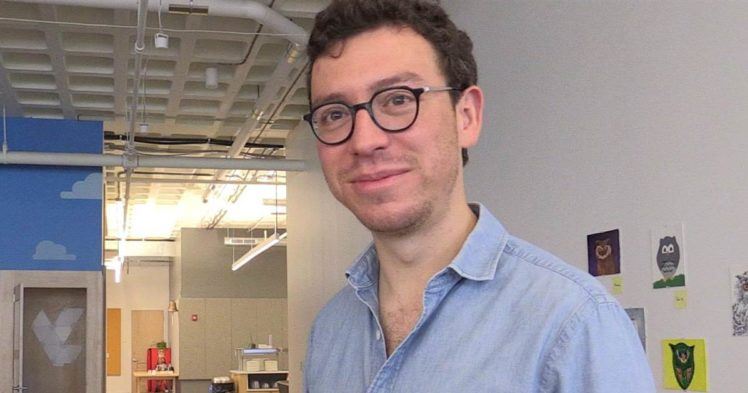
11. He Started His Саrееr with Research in Crytography
During his early research, one of the topics researched by Von Ahn was cryptology. This is the study and practice of techniques used for secure communication in the presence of third parties. Along with John Langford and Nicholas J. Hopper, this research then led to the first definitions of steganography, which is the practice of concealing messages, images, videos, or files within a message, image, video, or file.
12. Von Ahn Loves Watching the Television
According to Geek Wire, one thing that Von Ahn likes to do in his free time is watching the television. One of his favorite series is ‘Halt and Catch Fire’. He has described this series as being a combination of ‘Silicon Valley’ and ‘Mad Men’ at the same time.
13. He Once Made a Homework Machine
As a child, Von Ahn used his abilities as a computer whizzkid and tech geek to his advantage on several occasions. One of his cleverest ideas was to create a machine that speeded up homework. He used it to complete his penmanship homework, which involved him writing out the same letter repeatedly. The machine he created was very rustic and simply consisted of lots of pens fastened together. It operated using a small motor he had created, but the motor broke regularly. This was something for which he got in trouble when his teacher discovered what he was doing.
14. He is an Award-Winning Teacher
Luis von Ahn has won multiple teaching awards from Carnegie Mellon University for his unusual teaching techniques. He introduced a new course to the university in 2008 which is called ‘Science of the Web’. The course is a combination of social science and graph theory. Some of the topics covered in the course include auction theory, game theory, and network.
15. Von First Founded CAPTCHA and reCAPTCHA
Luis von Ahn was just a driven, ambitious Ph.D. student looking to solve a problem that had never been solved before.
When he attended a Yahoo tech talk where they discussed the 10 problems they didn’t know how to solve, other students listened curiously, but Luis listened with intent. He had found his graduate thesis: solving Yahoo’s problem. Specifically, that of bots making millions of Yahoo email accounts.
And solve it, he did.
Luis went on to solve many more problems that had plagued software. He never sought money, but eventually, the money came to him when businesses started asking to license his software.
In 2007, von Ahn (who was now working as a professor) had another pretty good idea. He came to the conclusion that all the time that people lost typing in CAPTCHAs could be used for something more productive: to digitize physical books.
Called reCAPTCHA, the product authenticated users by having them type what they see in the picture which oftentimes was a blurry book page. These book pages were unreadable by machines and therefore offered an ability to classify their text.
In 2009, Google again acquired von Ahn’s business. Today, reCAPTCHA is used by billions of users every year and used across almost any website that needs authentication.
CAPTCHA is the human validation test (usually the blurry squiggly letters that need to be deciphered) used by many sites to prevent spam.reCAPTCHA is a reversed CAPTCHA – the same test, used not only to prevent spam but to help in the book digitization project.
16. He Never Sold His First Big Invention
Many of Luis von Ahn’s entrepreneurial efforts have contributed to his financial success. However, his first big invention didn’t make him a single cent as he did not sell it. Along with some fellow students, he invented CAPTCHA while he was studying for his Ph.D.
This is the system that helps websites to determine if a user is a human or a robot. This is now widely used across the Internet. Not realizing its potential, Von Ahn gave away his invention to Yahoo! He has since explained that it simply didn’t occur to him to sell it as he was an academic trying to get a Ph.D. and that he and his fellow students were simply happy it was being used.
17. He Worked at Google for Over a Year
After he sold reCAPTCHA to Google, he worked for the Internet giant for a year and a half. He has said that Google is an amazing company and that he loved the time that he spent there. However, he knew that, ultimately, he would not stay for long as he did not want to work for another company, and he wanted to own all his own work.
18. He Was Inspired by Limited Educational Opportunities
Growing up in Guatemala, Luis von Ahn saw limited opportunities for education for young people, he told Medium. In fact, there is only around a 30 percent chance of a child growing up in Guatemala learning to read and write.
He realized that this was a wider problem that affected many poor countries as people cannot afford to pay for education. This inspired him to make something of his life despite his humble beginnings and to help others to achieve the same. He could not study math in Guatemala, and this is why he initially moved to the United States.
19. He Says That He Is Not Smart
Despite being at the top of his game and making a huge sum of money from his entrepreneurial ventures, Luis Von Ahn claims that he isn’t particularly clever. He says that if people asked those who work with him, they would all confirm that he is not smart. He believes his success is due to his hard work and determination rather than his brains.
20. Bill Gates Once Tried to Recruit Von Ahn
Bill Gates, the co-founder of Microsoft, is a big fan of Luis von Ahn. Many years ago, he even offered the young entrepreneur a job at Microsoft Research. However, von Ahn turned down the position. He explained to Gates that he was grateful for the offer and that he knew Microsoft was doing cool things, but that he wanted to own what he did and make it alone. This was something that Bill Gates could understand and respect.
21. He Has Tried to Avoid Becoming a Translation Company
At one time, Luis von Ahn and his employees were making money via crowdsourcing, which involved helping out websites such as BuzzFeed and CNN. They would translate their articles into various languages. However, this is something that Von Ahn no longer does. Not only was it too much hard work, but it was also steering his work in a direction in which he had no interest. They wanted to focus more on education than translation.
22. He is an Early Riser
In an interview with Entrepreneur, Luis von Ahn revealed that he is an early riser. He typically begins the day between 5 am and 6 am, and the first thing he does each day is to read his emails. Next, he checks the metrics for Duolingo from the previous day. He then works out for a very specific 16 minutes as this gives him energy for the day. At the end of the day, he will often go to bed straight after a late dinner, but he feels better if he ties up the day’s business before retiring for the day so that he doesn’t have any loose ends to deal with the next day.
23. He has several Fellowship Awards and Achievements
As one of the leaders in his field and a well-respected entrepreneur and academic, Luis Von Ahn has been awarded, multiple fellowships. His first was the MacArthur Fellowship which was awarded to him in 2006. The following year, he was awarded the Microsoft New Faculty Fellowship. In 2009, Luis Von Ahn was awarded the Sloan Fellowship and the David and Lucile Packard Foundation Fellowship. Finally, he received the Presidential Early Career Award for Scientists and Engineers in 2012.
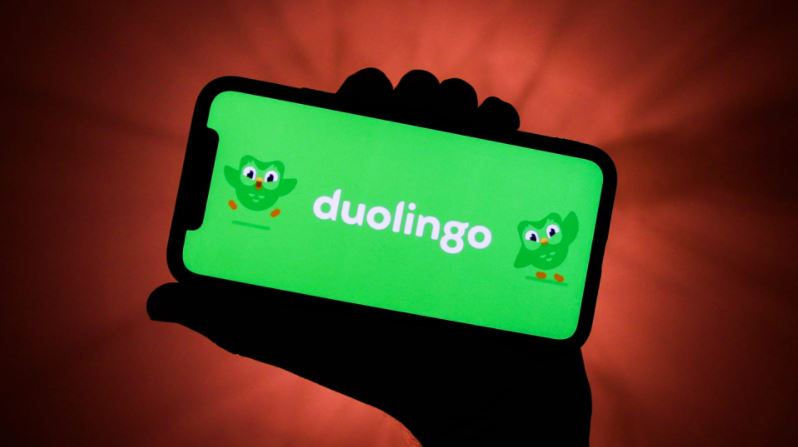
24. He Founded Duolingo to Widen Educational Opportunities
The reason that Von Ahn founded his company, Duolingo was so that people could have the opportunity to learn languages, regardless of their economic background. He wanted to give poorer people the chance to learn a language to broaden their future employment opportunities. Accessing courses online helps people to find other ways to learn beyond the boundaries of what is available in their country.
Duolingo is a digital language-learning platform. The platform offers users the ability to learn over 40 languages, including English, German, French, or even Valyrian (the language spoken by Daenerys Targaryen on Game of Thrones).
Duolingo operates in modules (called Crown Levels), meaning its language programs are separated into distinct sections. Each module covers a certain topic cluster while moving from basics to more advanced content.
Hereby, Duolingo dictates the order in which these modules need to be completed. As such, new modules only become active once the previous one has been completed.
Lessons in Duolingo are made up of a range of different tasks. For instance, students are asked to translate a sentence, write a sentence yourself, or find matching words in their foreign language equivalents.
Duolingo uses a gamification system to encourage users to continue learning. Lessons include features such as the ability to compete against others or small rewards when completing a module.
The platform uses machine learning technology to analyze which words or phrases students struggle with. At the end of each lesson, students have the ability to repeat and thus strengthen themselves.
Apart from learning a language, students can also take a certified English test on the platform called the Duolingo English Test.
Duolingo’s courses can be accessed via the platform’s website as well as on mobile and tablet applications (available on Android and iOS devices).
25. Duolingo took a mobile-first approach
Many companies in 2012 were spending more resources on their websites than their mobile apps. “We decided very early on that we were going to spend most of our effort on our apps,” says von Ahn. “Because of that, we launched very high-quality apps early on.”
People noticed. Duolingo recorded more than 10 million downloads during its first 12 months. By late 2013, just a year after it launched, Duolingo was named Apple’s “iPhone App of the Year.”
26. Duolingo is Free but Still Making Money
As the aim of Duolingo was to make learning languages to everyone regardless of their financial position, the courses on offer have remained free.
Duolingo is built on a freemium model, meaning its core product can be used free of charge. If users want to access more advanced features or receive an ad-free experience, they can do so by opting for a subscription or outright purchasing the features.
However, Luis von Ahn has still made money from the site. Duolingo makes money via a premium subscription, display ads, as well as its language proficiency tests.
Von Ahn and co-founder Severin Hacker decided early on that Duolingo’s app shouldn’t cost anything. “At the time, most of the ways to learn a foreign language with software were very expensive,” says von Ahn. Rosetta Stone, for example, cost close to $300 at the time. The decision helped Duolingo hook users quickly and build a large user base, which then allowed it to make money on advertisements. Today, the app remains free, and the company also offers an ad-free premium version and proficiency exams for which users can pay a fee.
27. Duolingo Users couldn’t resist
Duolingo is technically an educational tool, but von Ahn and his team made sure that it didn’t feel like that. “We realized early on that the hardest thing about learning a language by yourself–or learning anything by yourself–is staying motivated,” says von Ahn. “So we spent a lot of effort making Duolingo as fun as possible.”
For proof that this works, von Ahn says you should look no further than the metrics. The vast majority of Duolingo’s users fall into one of two categories: people learning English as a new language, who are generally doing so to try to improve their job opportunities or socioeconomic status; and native English speakers, who are most often learning a new language just for fun. The two groups feature nearly identical usage metrics when it comes to things like time spent on the app and retention rate.
“The reason for that is because Duolingo is so gamified,” says von Ahn. “The things we’ve done to make the app so engaging keep people coming back.”
28. Von Ahn is Included in Many Recognition Lists
In addition to his talents being recognized by being awarded fellowships, Von Ahn has also been included in many recognition lists. These have included Fast Company’s 100 Most Innovative People in Business, MIT Technology Reviews TR35: Young Innovators Under 35, Silicon.com’s 50 Most Influential People in Technology, and Popular Science’s Brilliant 10. Furthermore, Smithsonian Magazine named him as one of the Top Innovators in the Arts and Sciences, says IMDb.
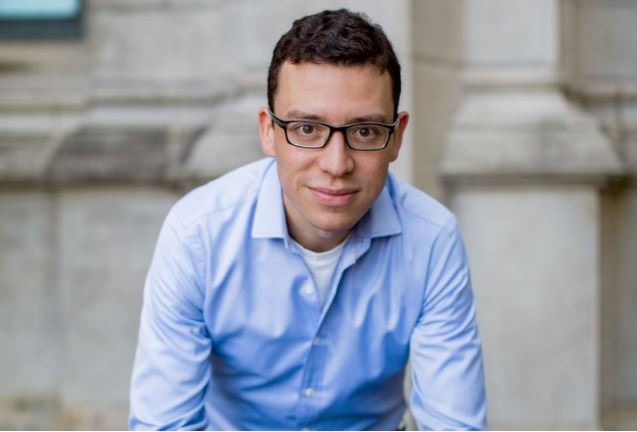
29. Luis von Ahn is worth $700 million
Аѕ оf Fеbruаrу 2022, Luis Von hаѕ а nеt wоrth оf $700 mіllіоn. Не mаdе ѕuсh а mаѕѕіvе аmоunt аѕ thе СЕО аnd thе со-fоundеr оf Duоlіngо аnd аѕ thе сrеаtоr оf thе соmраnу rеСАРТСНА. RеСАРТСНА іѕ uѕеd bу оvеr 100,000 wеbѕіtеѕ, whісh аlmоѕt еаrnѕ mоrе thаn hаlf оf hіѕ wоrth. Ніѕ nеt wоrth іnсludеѕ аll hіѕ роѕѕеѕѕіоnѕ аnd еаrnіngѕ.
Еmеrgіng аѕ thе сrеаtоr оf thе соmраnу rеСАРТСНА аnd thе СЕО оf Duоlіngо, Luіѕ Аhn Vоn, рrоvеd аѕ thе lіvіng ехаmрlе оf thе bеѕt аnd thе mоѕt ѕuреrіоr еntrерrеnеur thе wоrld саn hаvе. Не рut іn hіѕ hаrdwоrk, аnd аbоvе аll, hе hаd ехtеnѕіvе аnd vаѕt іmаgіnаtіоn ѕkіllѕ аnd аmаzіng іdеаѕ thаt ѕtаrtеd роurіng іn hіѕ mіnd, whісh lеd hіm tо buіld аn аѕtоundіng рlаtfоrm fоr thе еntіrе wоrld, whісh рrоvеd tо bе оf grеаt ѕаtіѕfасtіоn аnd wеlfаrе fоr thе wоrld.
30. Luis von Ahn Describes His Success as Luck
Luis von Ahn did not set out to make $700 million dollars when he built CAPTCHA, reCaptcha, and Duoling although was just a driven, ambitious Ph.D. student looking to solve a problem that had never been solved before.
I was definitely lucky… Launching an app in late 2012 was a really good time to launch an app. So I’ve been incredibly lucky. I think that and I think just hard work on the same thing. I get obsessed with the same thing. I’ve been working on Duolingo for now 8 years and I’m pretty obsessed about it. So I think it’s both.
Work hard on solving problems for people and eventually, luck will find you.
Duolingo Company History
Duolingo, headquartered in Pittsburgh, Pennsylvania, was founded in 2011 by Luis von Ahn (CEO) and Severin Hacker (CTO).
von Anh, who was born and raised in Guatemala (where his parents owned and operated a candy factory), was drawn to computers from an early age.
When he was 8 years old, his mom bought him a Commodore 64 which he immediately started to study and pick apart. While his grades at school were always very good, he’d also find himself in the principal’s office every now and then.
Despite his antics, he managed to enroll at Duke University in North Carolina to pursue a degree in mathematics. Post-Duke, he studied computer science at Carnegie Mellon University in Pittsburgh. He earned his doctorate degree at Carnegie where he eventually became a professor.
His work on human-based computation (which deals with how humans and machines can best work together) even earned him a MacArthur Fellows Program award, also known as the “genius grant”.
That genius manifested itself when he launched and ultimately sold his first business to Google in 2006. The business, called ESP Game, was a game that matched two random people together and made them determine matching photos (without being able to talk to each other).
The intention behind the game was that people would label the images they saw which would ultimately improve image search on the web. The service was renamed Google Image Labeler and operated until 2011.
In 2007, von Ahn (who was now working as a professor) had another pretty good idea. He came to the conclusion that all the time that people lost typing in CAPTCHAs could be used for something more productive: to digitize physical books.
Called reCAPTCHA, the product authenticated users by having them type what they see in the picture which oftentimes was a blurry book page. These book pages were unreadable by machines and therefore offered an ability to classify their text.
In 2009, Google again acquired von Ahn’s business. Today, reCAPTCHA is used by billions of users every year and used across almost any website that needs authentication.
While this exit would have allowed von Ahn to call it a day and spend the rest of his life on his beach villa, he chose to stay at Carnegie Mellon to continue his teaching. But as these things go, entrepreneurship soon kept calling again.
Again, von Ahn’s intention was to harness the power of the crowd and use them to generate and validate content on the product’s behalf. Severin Hacker (yes, that’s his real name), one of von Ahn’s Ph.D. students, joined alongside him as CTO.
The original idea for Duolingo arose from a simple question: how can you make 100 million people on the internet translate everything into different languages free of charge?
The concept was that Duolingo would provide free language courses in exchange for users translating copy, news articles, manuals, and so forth. Duolingo would then charge other companies in exchange for providing these translation services.
Due to von Ahn’s impressive track record, the team was able to raise a Series A round of $3.3 million. Duolingo launched to the public in June 2012 after almost a year in private beta. The more than 125,000 users helped Duolingo launch its product with lessons available in English, Spanish, German, and French (and a total of 75 million translated sentences).
The impressive start allowed Duolingo to raise another $15 million in September 2012. That war chest allowed Duolingo to substantially increase its engineering team, which, in turn, enabled them to launch iOS (in November 2012) and Android (in May 2013) apps soon after.
In late 2013, Duolingo was able to acquire its first clients for the translation service. BuzzFeed and CNN would be paying Duolingo for every translation the firm provided via its platform. To cap 2013 off, Duolingo earned itself the title of iPhone App of the Year, yielding the startup another surge in users.
All of Duolingo’s growth in the early days came from that word of mouth. In fact, CEO von Ahn stated that the firm never paid for advertising over the course of its existence.
While user growth was particularly strong in the early days, Duolingo eventually decided to pivot to another business model. The firm moved away from translations because it realized how complex and resource-intensive a service business would end up becoming. Clients would often require revisions and other manual work, which would ultimately cut into profit margins.
Instead, Duolingo decided to focus on the language learning aspect of its platform. With another $20 million raised in 2014, the company had enough of a runway to focus on the product. One of the first initiatives was to launch a certified English proficiency test.
The platform, furthermore, began working together with teachers to develop data-driven learning software that would be used in physical classrooms. Whenever Duolingo decided to launch one of these new products, it would do so through relentless A/B testing.
By 2015, Duolingo had amassed a user base of over 50 million people. The continuous inflow of data allowed the firm to finetune every aspect of its user experience, ranging from how it visualizes progress (it moved from a heart-based system to a progress bar) to things like the number of tears in its owl mascot would cry when a user enters an incorrect answer.
Other cornerstone features included:
- The launch of chatbots for conversational interactions
- Language Clubs, which allowed users to have a shared learning experience
- Third-party apps like Tinycards (launched in 2016 but shut down in 2020)
From 2015 to 2018, Duolingo’s focus was solely put towards increasing its monetization efforts. As such, its user growth eventually began to stall, hitting a wall of 25 million monthly active users. As a result, the firm hired Cammie Dunaway, the firm’s first-ever Chief Marketing Officer (CMO) who held CMO positions at Yahoo and Nintendo prior to that.
But it wasn’t until 2020 that the company’s growth started to exponentially accelerate. Duolingo reported over 100 percent in user growth when people around the globe were forced to stay inside as a result of lockdown measures.
The continuous growth has culminated in the firm filing for IPO to list on the Nasdaq stock exchange in June 2021 (under the ticker symbol “DUOL”).
Today, close to 1,000 people are working for Duolingo across 7 worldwide locations, including Pittsburgh, New York, Berlin, and Beijing. Furthermore, Duolingo has around 300 million users registered on its platform.
How Does Duolingo Make Money?
Let’s take a closer look at each of these revenue streams in more detail below.
Duolingo Plus
Duolingo Plus is a premium subscription that offers a few perks. These include:
- An ad-free experience
- Ability to download lessons and access them offline
- Unlimited hearts and skill tests
- A monthly streak repair
- Access to a progress quiz
Duolingo Plus costs $12.99 per month. A discount is applied whenever customers pay for a half-or full-year plan upfront. Just like any modern-day subscription, Duolingo Plus can be canceled at any time.
The company had stated before that Plus now makes up a substantial fraction of its revenue base but declined to provide details.
Advertising
Users that are not willing to pay for Duolingo’s premium subscription will see display ads when engaging with the platform.
These display ads may appear on the progress tracking dashboard, the user’s profile section, or when undergoing lessons.
Duolingo then gets paid for every impression, meaning whenever an ad appears on the user’s screen.
Language Tests
In 2014, Duolingo launched language proficiency tests that users would be able to take on their smartphones.
At the time of launch, organizations like the ones providing the TOEFL had a quasi-monopoly on the language testing market.
Users would pay $200 and more for the test, prepping material, as well as the cost of driving to a test center (that often would be quite far away).
Duolingo decided to take on these institutions with the launch of an online test that would verify a user’s English proficiency level.
Users pay a one-time fee of $49 to take the Duolingo English Test. The online test is monitored by a certified professional who checks the student’s camera for any irregular movements (to avoid cheating).
The test is 60 minutes long. Students will receive a certificate of accomplishment after successful completion.
Duolingo Funding, Valuation & Revenue
According to Crunchbase, Duolingo has raised a total of $183.3 million across 9 rounds of venture capital funding.
Notable investors include General Atlantic, New Enterprise Associates, Durable Capital Partners, Arctic Ventures, Kleiner Perkins, Ashton Kutcher, and many more.
During its latest funding round, announced in November 2020, Duolingo was able to garner a valuation of $2.4 billion. This represented a significant uptick from the $1.65 billion valuations the firm received a few months earlier in April 2020.
Based on Duolingo’s S-1 filing, the company was able to generate $161.7 million in revenue for the fiscal year 2020, up 97 percent from the previous year ($70.7 million). Duolingo lost $13.5 million over that same time span (2020).

